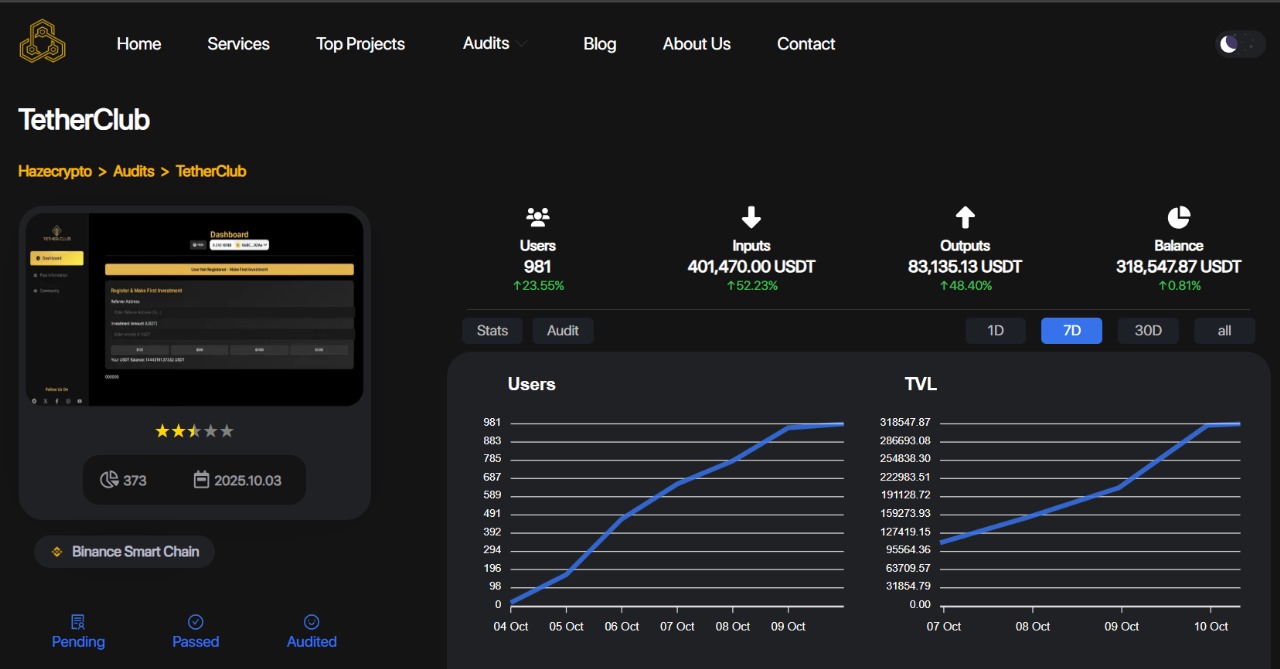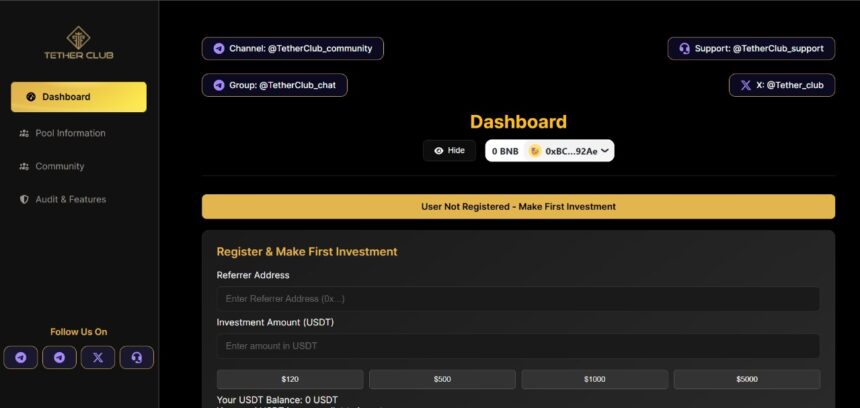Decentralized Finance (DeFi) continues to be one of the hottest trends in the crypto world. Among many emerging names, Tether Club.org has started gaining popularity for its USDT-based smart-contract investment model that offers steady returns.
While the concept looks exciting, investors need to understand how such projects work — and what risks they carry — before getting involved.
website link (https://tetherclub.org)
What Are DeFi Smart-Contract Investments?
DeFi, or Decentralized Finance, eliminates middlemen by using blockchain technology. Smart contracts handle everything automatically — from accepting deposits to distributing rewards.
Projects like Tether Club let users deposit USDT (Tether) and earn returns directly through these self-executing blockchain contracts.
The Tether Club Example

Recently, Tether Club gained traction across crypto communities after attracting nearly $401,470 USDT in just seven days of launch.
Its smart contract has been audited by Haze Crypto, confirming that the code has no known backdoors or scam scripts. That said, a smart-contract audit only ensures technical transparency — not guaranteed profits.
Tether Club reportedly offers:
- 0.4% daily returns until investors reach 175% ROI
- Referral rewards in a pyramid-like system, rewarding those who invite others
The project claims it uses arbitrage trading and other mechanisms to sustain returns.
The Pros of DeFi-Based Projects
- Transparency: Every transaction is visible on the blockchain. Investors can verify contract balance and payouts anytime.
- Automation: Smart contracts remove human intervention — no manual control, no third-party handling.
- Community Growth: Referral systems help projects spread quickly among crypto users.
The Risks You Should Know
While the technology behind such projects is solid, the financial model often carries risk.
- Unsustainable Returns:
Fixed daily returns are rarely sustainable long-term. If new investments stop, payouts can slow down or end. - No Legal Backup:
DeFi is decentralized — if something goes wrong, there’s no central authority or refund mechanism. - Ponzi-like Structures:
Many similar projects in the past collapsed once new deposits dried up. Always stay cautious and avoid over-investing.
Final Thoughts
DeFi platforms like Tether Club showcase how blockchain can automate financial opportunities — but they also remind us that risk and return go hand in hand.
Always:
- Review audit reports
- Track on-chain data
- Understand referral structures
- Invest responsibly
Early participants may gain if a contract’s balance keeps rising, but there’s no guaranteed sustainability once inflows slow down.
👉 Invest Now with Tether Club
🌐 Join Our Growing TetherClub Community
Disclaimer:
CryptoDiaryUSA does not endorse or promote any DeFi or investment projects.
This article is intended for informational and educational purposes only.
Readers must do their own research (DYOR) and take full responsibility for their investment decisions.
